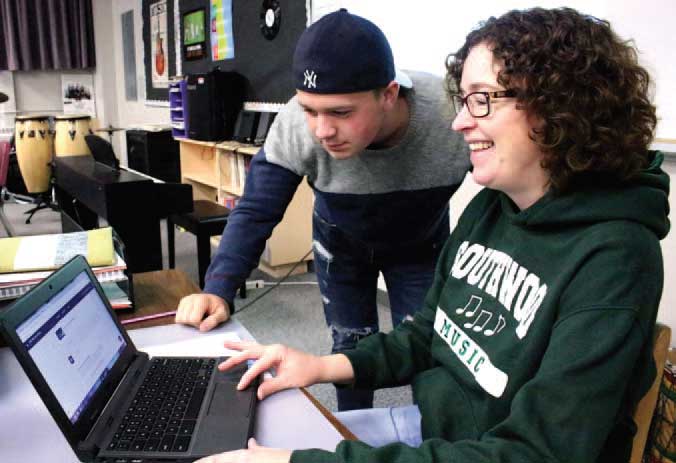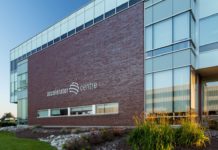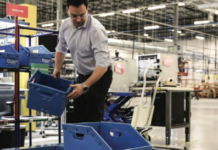In a classroom at Southwood Secondary School in Cambridge, Ontario, Jane Gingerich delivered her lesson on the theory of the dominant seventh chord to a class of one. The laptop’s blinking green eye stared unerringly back at her.
Uploading her lessons to Youtube, Gingerich’s real students watch and re-watch her video lessons on new board-issued laptops allowing the teacher to dedicate classroom time to coaching and laying down tracks together for them to practice with at home.
“Technology wouldn’t be the first thing I would go to,” said Gingerich. “But I know it is necessary.”
Across Waterloo region’s public schools this September, every Grade 9 student received a Google Chromebook to start the school year. The small laptops are theirs to keep for the duration of high school, and the innovation is changing the face of learning in Canada’s innovation capital.
With technology available to every student, teachers in the Waterloo Region District School Board are finding new ways to provide instruction to help kids learn everything from math to music.
“I teach a multi-level music program, so there are Grade 9 through to Grade 12 in my class,” said Gingerich. “The Chromebooks mean I can provide a separate course for each child and I can spend my time in class facilitating and checking-in to make sure that the kids get it.”
By 2019, every student in 16 high schools will have their own board-issued Chromebook, making the Waterloo public board Ontario’s first to roll out such sweeping changes to learning and instruction.
“We now have the tools to teach students in their world – not in our world,” says Mark Carbone, chief information officer. “This is 2016, so we really want to give students access to the digital tools and resources for learning that reflects their interests and develops skills for the future.”
The public board recently put innovation at the core of a new strategic plan that focuses on individual student achievement and well-being. “The Chromebook initiative is an example of our strategic plan coming to life for every one of our Grade 9 students”, said Carbone. “This region is known around the world for technology and innovation. Our public schools are now ensuring that the youngest generation of innovators in this region have the tools they need to make an impact on our world.”
In at least one music class, the Chromebook program is allowing Gingerich to be more of a musical director than a classroom teacher.
“Chromebooks are really pushing me to think how else can I use technology to help students learn rather than being in charge. I’m finding that I get much more input from my students and we are making music together.”
















